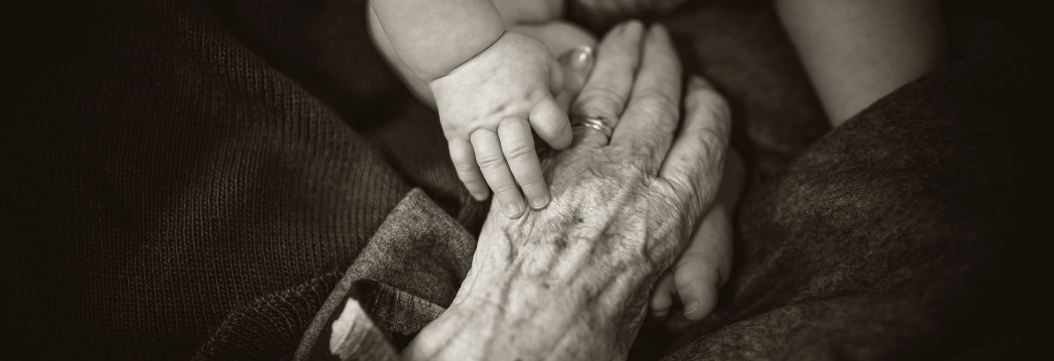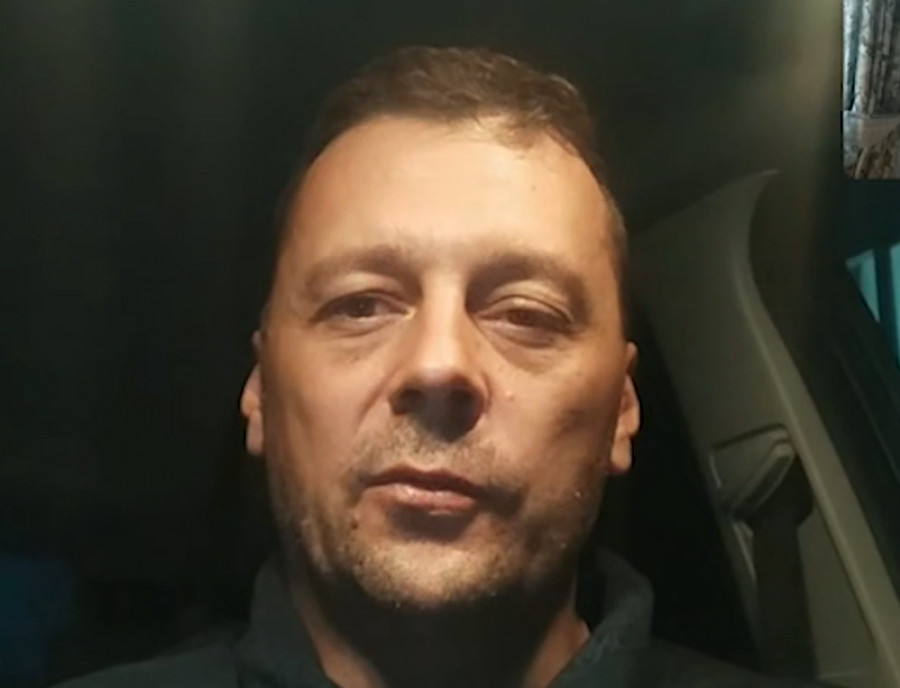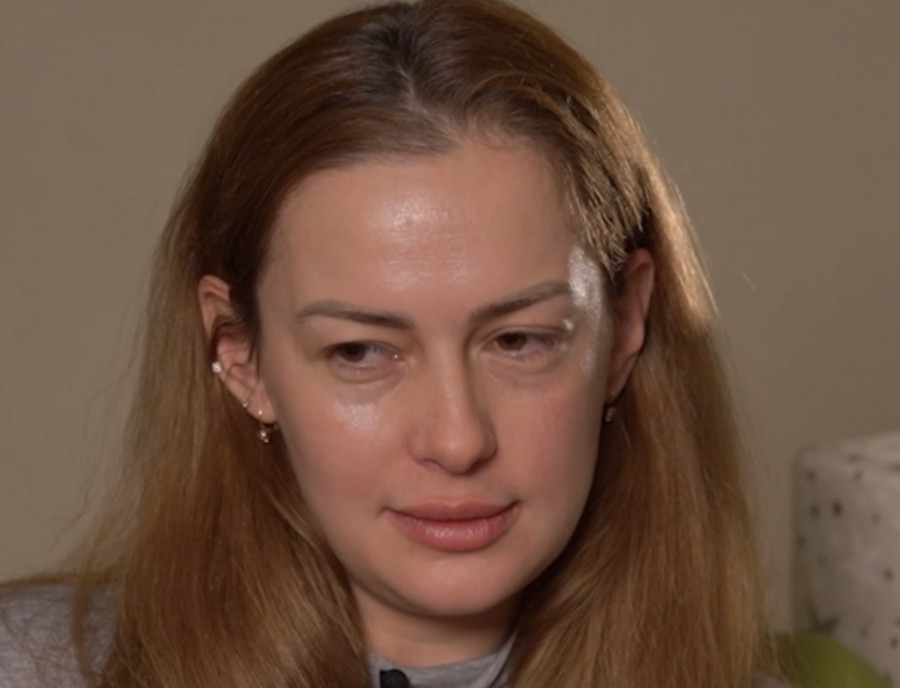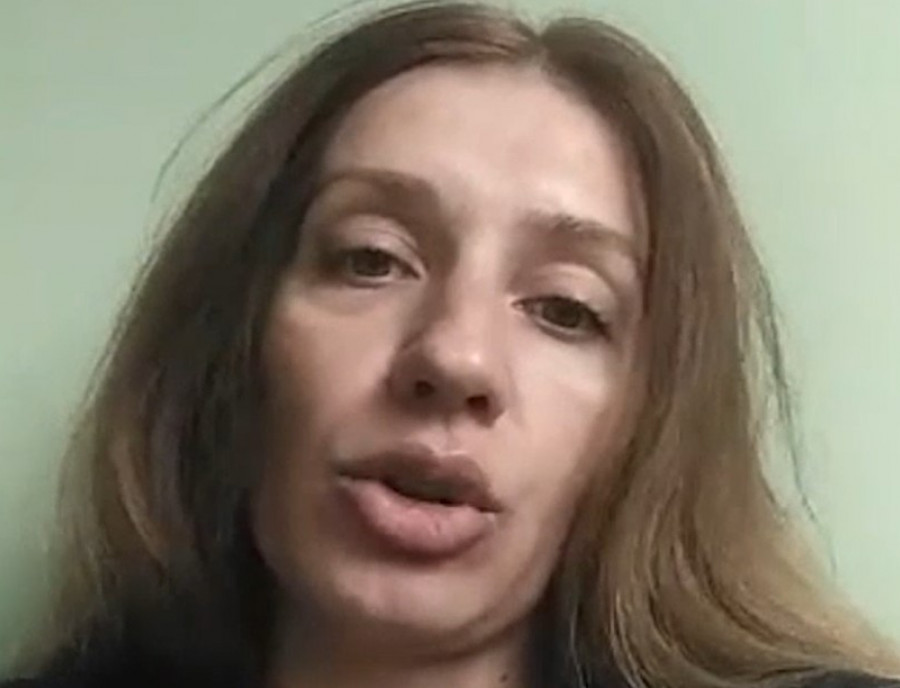Olena Korzh, the founder of Child Personality Development Plus, an organization for children with autistic disorders, helped dozens of families with autistic children leave Berdiansk. Olena’s son has the same type of disability. For these children, war, the sound of explosions, panic, or even the lack of familiar food means a slow death.
Olena evacuated her son from the enemy-occupied city going through minefields on a minibus, in diapers (not to make any stops along the way), and passing through 25 Russian checkpoints. Now she prays for the safety of her husband who was forced to stay at home.
On 24 February, we woke up to the sound of some terrible explosions. We woke up because our house was shaking, and we can honestly say that the earth was shaking too.
Our son did not hear the first explosion. He was sleeping. Then he woke up, we woke him up. He woke up terrified because he did not understand what was happening. But then the second, third, fourth [explosion] followed... There were four explosions in our city. We felt it all then. On the second day, on 25 February, all of us in our city… We live in a small city populated by 120,000 people. It is a resort place on the seashore. We learned that, unfortunately, there were no armed forces in our city.
All the troops, all the units had been taken out, as we were told later, to defend Mariupol, to other... to defend other territories. Nobody expected that Berdiansk would be attacked.
We are a small resort city, a dead-end place. Therefore, unfortunately, all the city’s defence forces were taken out and only civilians remained. Nevertheless, no one considered this and they attacked our city in the same way as other places.
On 27 February, [their] troops entered our city. They came on tanks. The railroad was destroyed. We learned about all this from Telegram channels, from local news, from Facebook and Viber messenger. They entered on tanks and destroyed the railroad. Those were the only two connections with the city. It was the railroad and the highway. One bridge on the highway was blown up. There was no way to the city. And the railway was blown up too. That was when we all saw their tanks in the city.
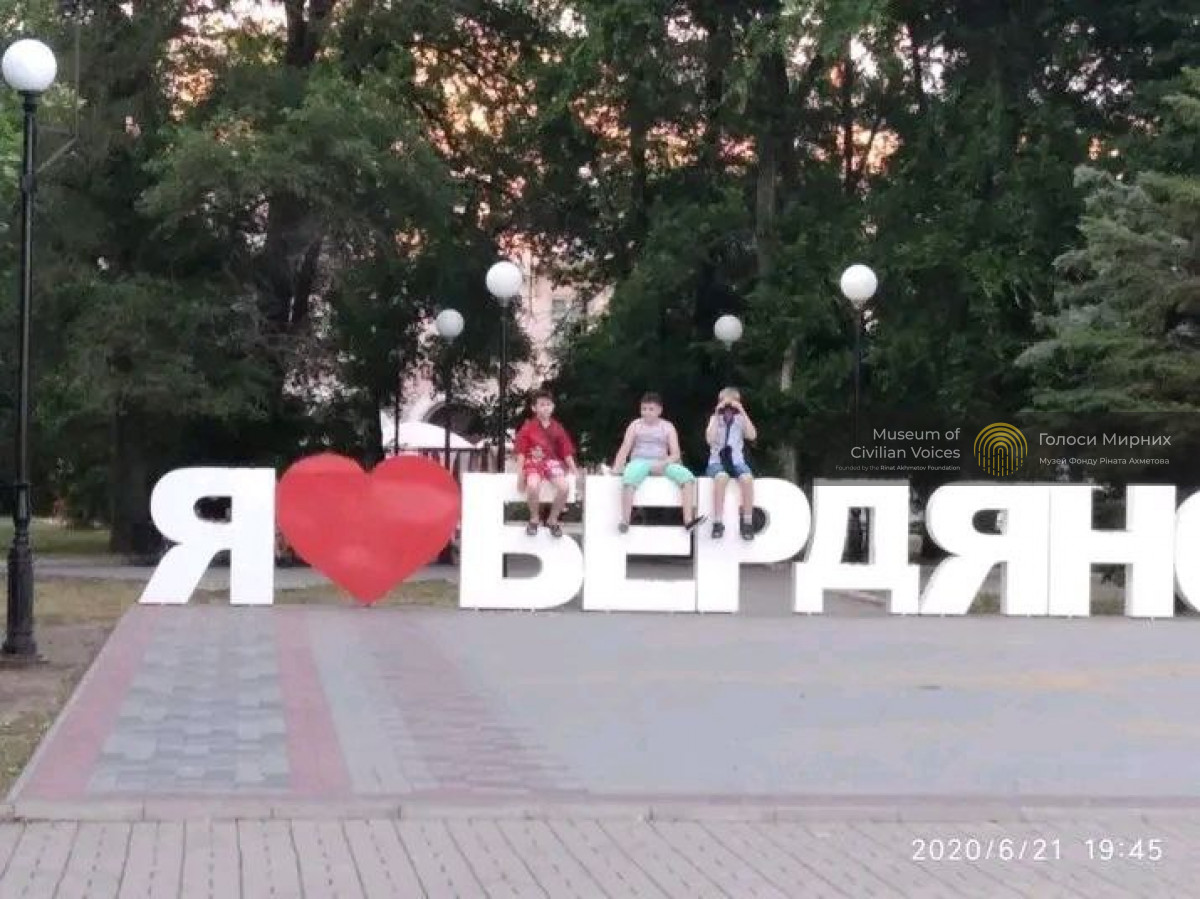
We saw armoured personnel carriers, we saw those huge... well, I don’t know what they are called, we used to call them “Katyusha” [rocket launchers]. Those huge vehicles with large shells. We saw all this and the information about it spread very quickly. This convoy of military vehicles and equipment was passing near our house, just down the street, with guns aimed at all our houses. We lived in a private house, so it was incredibly scary.
Naturally, we all got our basements/cellars ready on the second day because we understood what it was. We realized that it was not something minor as it was reported on TV. We equipped our basements so that we could hide there. We additionally set up some shelters so that we could get out of the basement safely in case it collapsed.
We saw those huge tanks. The tanks were in the field, the tanks were along the borders of the whole city. They just pointed their barrels menacingly and shone their searchlights. Then we realized that our field was being mined and the city was being mined from different sides.
The port was mined, the detour, the approach road, the exit from the city were mined from several sides, and the fields were mined too. On 28 February, it was still wintertime in Ukraine, and it was 12 degrees below zero in Berdiansk. The city was left without gas supply. This means there was no heating anywhere, including in private houses. Since everyone turned on their heaters, electric heaters... all the power grids simply broke down. Our city was left without electricity and without gas. The apartment buildings were without water too because water pumping stations were supposed to operate on electricity, which was cut off. So all the residents who lived in the city centre brought water from the sea in buckets. Those who lived in other parts of the city had to get water in some other way.
We had a well in our private house’s yard. That was rainwater. We collected some rainwater in it. We often recycled it. So we were able to use our own water. Yes, you are right that there was a peculiar amenity. Having equipped our basement, we put it there... It was rather an old-fashioned solution, a bucket with cat litter. As we have a child with disability, we had to take that aspect into consideration.
When we left the basement, searchlights were constantly shone on us. We understood that it was from tanks, with their muzzles and their lights pointed at our houses.
Notably, there were no explosions, no major explosions in our micro-district. I mean some serious explosions. We knew when they started bombing Mariupol very heavily (the rumours reached us very well). When Mariupol was bombed, our windows were shaking. When explosions were closer to us, the walls started shaking too. While in our private house, we really felt how the earth was shaking.
As if an earthquake was happening. And to calm down a child with autism, honestly, looking back now, I cannot imagine how we survived it all. After the bombing of Mariupol, Mariupol residents started coming to Berdiansk, as there were two roads [from there]: one direct road to Zaporizhzhia, which was mined, and another road, a safer one, to us, to Berdiansk, which was within the range of fire. That is why many people came to our place. Most of them came to Berdiansk, and the entire infrastructure, all the capacities of the city… (I am talking about the dairy plant, the bakery, and our factory), given that the city was besieged, everyone understood that there would be no food delivery.
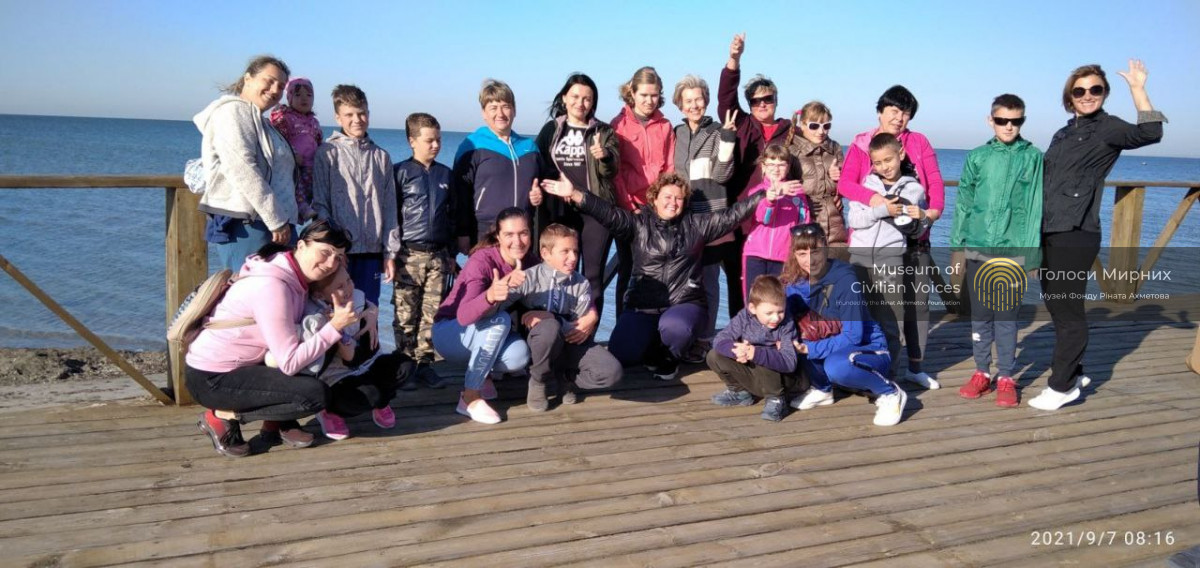
All the stocks and supplies ran out in a week. A week after the war started, we ran out of food in the city and there was no food supply anymore.
We engaged in some volunteering activity. We helped other families who had children or adults with disabilities too. We helped them, we scouted for something, we pooled our efforts, we exchanged food for food, one thing for another, goods for goods, and we provided our families at least with the most essential and necessary stuff. We live in the private houses’ area, and our private house is an old building.
We used to have two ovens, and when doing repairs, we removed one of them. We left the second oven just in case. We decorated it. It was more like a stand or a shelf for us. Then we opened it up, cleaned the entire chimney system and made use of that oven. People came to us to warm up because after the cold, our limbs were just trembling, as we were in fear all the time too.
We were freezing cold, and we were shaking in our shoes from that cold. So our neighbours sometimes came to us to warm up, but even we ourselves could not warm up. To be honest, I have been in safety for three months now, in a safe country, but I still cannot get warm.
The turning point was when we realized that there would be no going back. Throughout the city, Russian troops began to detain public activists on the streets, to kidnap all of them from their houses. Just some people dressed in civilian clothes came, introduced themselves and took with them all the activists who were engaged in some activity... were engaged in something. Especially those who began to raise some movements somewhere in the city. Those who voiced opposition in public and those who gathered some rallies.
They were detained in the first turn. After some time, we learned that they [the invaders] were holding those activists in the territory of a former prison. We realized that they started to suppress [rallies], and the Russian television began to suppress [any opposition] even more.
What they report is not just altered or distorted facts. It is a distortion of human consciousness. It is such a harsh manipulation of consciousness against the backdrop of politics mixed with a religious influence. It really changed people’s mind-sets. You just cannot take it, cannot accept it.
Then, they started to put pressure on teachers. I am a social care teacher by education. I am engaged in social activities that support families raising children with disabilities. I am involved in pedagogics; I have to do with our teaching science, with inclusive education in Ukraine. That is why we understood that they would come for us too.
The turning point was the last explosions just before 1 April, at the end of March. Those were very strong explosions some four kilometres away from my house. Our windows shook, the windowpanes broke, and there was a real threat. Then we all made a decision, together with other parents, that we had to leave, we had to go. Right before our departure, at the end of March, they began to scout around the private houses’ area. They started walking around... Our city is a resort place and the city districts like [Berdiansk] Spit, Slobodka, Lisky, the districts close to the coastal line, those are the areas where accommodation or rooms were normally offered for rent to vacationers. They visited every house to check if the owners left or not. And all such property was simply confiscated, it was simply seized.
My husband decided to stay for our house not to be seized. Well, although, in principle, all of us could leave. Given that we have a child with a disability, it is incredibly difficult to be alone. It is very difficult to be in another country without knowing the language. It is incredibly difficult but we made such a decision. Two days ago…
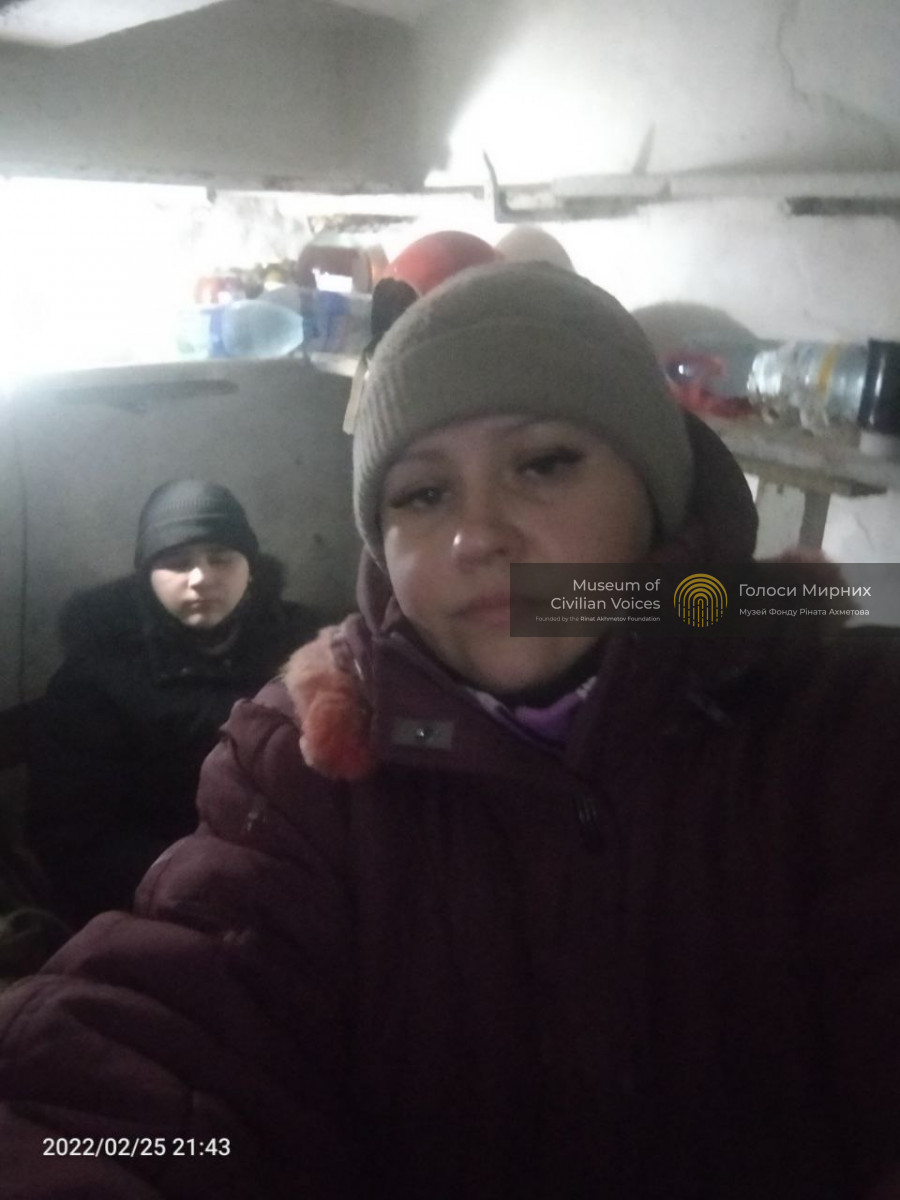
I already mentioned it that public activists start to receive phone calls with threats. Many public activists have been taken to that prison, to the pre-trial detention centre. I got a call two days ago early in the morning. It was at seven o’clock in the morning, by local time here in Germany. So it was six o’clock in the morning in Ukraine when they called me. The man who called me introduced himself and wanted to have a talk. He had rather a pleasant voice, probably trained in speaking skills, like a TV announcer, a respectful tone, in Russian language. He named my organization, quoted my full name and said that they wanted to invite me for a talk concerning the possible cooperation. “Are you in Berdiansk? When could you come to talk about our collaboration?” I realized that two days ago they could come to my house looking for me.
Speaking of our trip, we were warned in advance to put on diapers. All the ten of us, we all were travelling in diapers, both adults and children. No one asked for a stop to go to the toilet. Six hours long ride. No one knew what the trip would be like.
We drove six hours and other people drove even twelve hours. Those leaving [the city] were mothers with children. From the very beginning, we agreed with children’s mothers that we would put the children in the middle of the bus. We placed the chairs in such a way, well, we arranged it so that we, adults, sat near the windows, while the children were in the middle of the passenger compartment. Why? We saw some dead bodies on our way.
We saw some blown up cars, we saw mines on the road, and although our kids are children with autism, all of them are highly functional (children with a highly functional autism), so they understand what they see outside the window. For them not to see all that, we sat near the windows, and they sat [in the middle]... The children were going as if for a journey. We prepared them for it.
We said that we were going for a ride on a terrible quest. So we had a “horror quest”. We all travelled in diapers and almost did not eat or drink anything. Well, the trip was very hard and very scary.
There were 21 or 22 checkpoints, I don’t remember exactly. There were about five checkpoints with Chechens, and there were checkpoints with Russians too, basically... When we got on the bus, we were immediately told that men should sit in front, as they would be constantly asked to go out and checked. So all the women sat in the back, and all the men were in the front part of the bus. They were ordered to go out at each checkpoint. At some of the checkpoints, they were ordered to undress.
Sometimes they were asked to strip only to the waist and sometimes they were told to strip from the waist down. They searched the men, looked at their tattoos, and checked if they had any traces from using weapons or traces from wearing body armour. When they saw a tattoo, they inspected everything closely with a flashlight, every line, every object. Well, some of our men had tattoos but those were probably just some thematic tattoos, about nothing, so everything went relatively well for us. They inspected our things at 32 checkpoints. They checked almost everything, all the things we had with us. They opened my suitcase too. We were warned right away that we could travel only with one bag. Even if two passengers travelled together, we could only take one bag and nothing else. We hid our laptops and other devices/gadgets. I took one laptop with me because my son does some programming.
I needed a laptop for that reason, so I took it with me. We were warned right off, “Delete everything from your phones, all applications and all photos. Do not have anything saved, as all this will be checked.” They checked everyone.
They checked women as well as men, checked their phones and things. They took my bag out and opened it. I had the laptop and some personal belongings in the bag. Everything was in one place. There was underwear near the laptop, so they took it out and looked.
They did not open my laptop, while they checked some laptops in other bags. Well, that was at the Russian checkpoints, where they were... Well, it was clear that they were Russians. Then, when we came to the Chechen checkpoints, it became somewhat more difficult there. It was really tense at the Chechen checkpoints. Well, it probably has something to do with their culture, their very mentality, the mind-set of those Chechens.
We had a 15-year-old boy traveling with us who had autism too. He was a tall boy and he had small teenage moustache on his face, but one could see from his face that he was not an ordinary child. This was not Down syndrome, which is quite visible, but it was still visible. And while at the Russian checkpoints, they asked and his mother said, “Shall he get out?... He is 15 years old.” They said, “No, no need, we see everything. You don’t need to go out.” Then at the Chechen checkpoint, they ordered him to go out and said, “Go out, you are a man.” His mother answered for him. The boy could not say anything, so his mother answered [that] he was 15 years old, he was still a boy, and that he had a disability.
He [the soldier] replied, “I don’t care. You are a man, you are already 15 years old and you should go out together with the rest of the men.”
His mother went out with him. They just went up to the door. They did not go out, they did not search him. Well, that was a tough attitude. It was a very harsh treatment, for sure, in addition to that tense and long ride. We breathed a sigh of relief when we reached Zaporizhzhia. In the morning, we got ready, had some breakfast and went to the railway station in Zaporizhzhia to go further to Lviv. In Lviv, we had to decide where we were going next.
We realized that the whole country was being bombed and even if we moved to another place, we still left home with children with disabilities who were afraid of fear.
They were not afraid of some particular thing, but they were rather afraid of fear in general, the very feeling of fear. And to move from one place to another in Ukraine still meant to bring that fear from one place to another. Therefore, we realized that we had to move to a safe place where it would be calm and quiet.
In Zaporizhzhia, as we came to the railway station, there was another very stressful moment when there were about 203,000 people on the station square. It was just a huge crowd, a tsunami, a huge wave of people at the station. People had conflicts, shouted and fought. There were scandals; there was constant pushing and shoving. Everyone was squeezed. And once again, we went through this ordeal when we took the children aside so that they could safely pass through the corridor to board the evacuation trains.
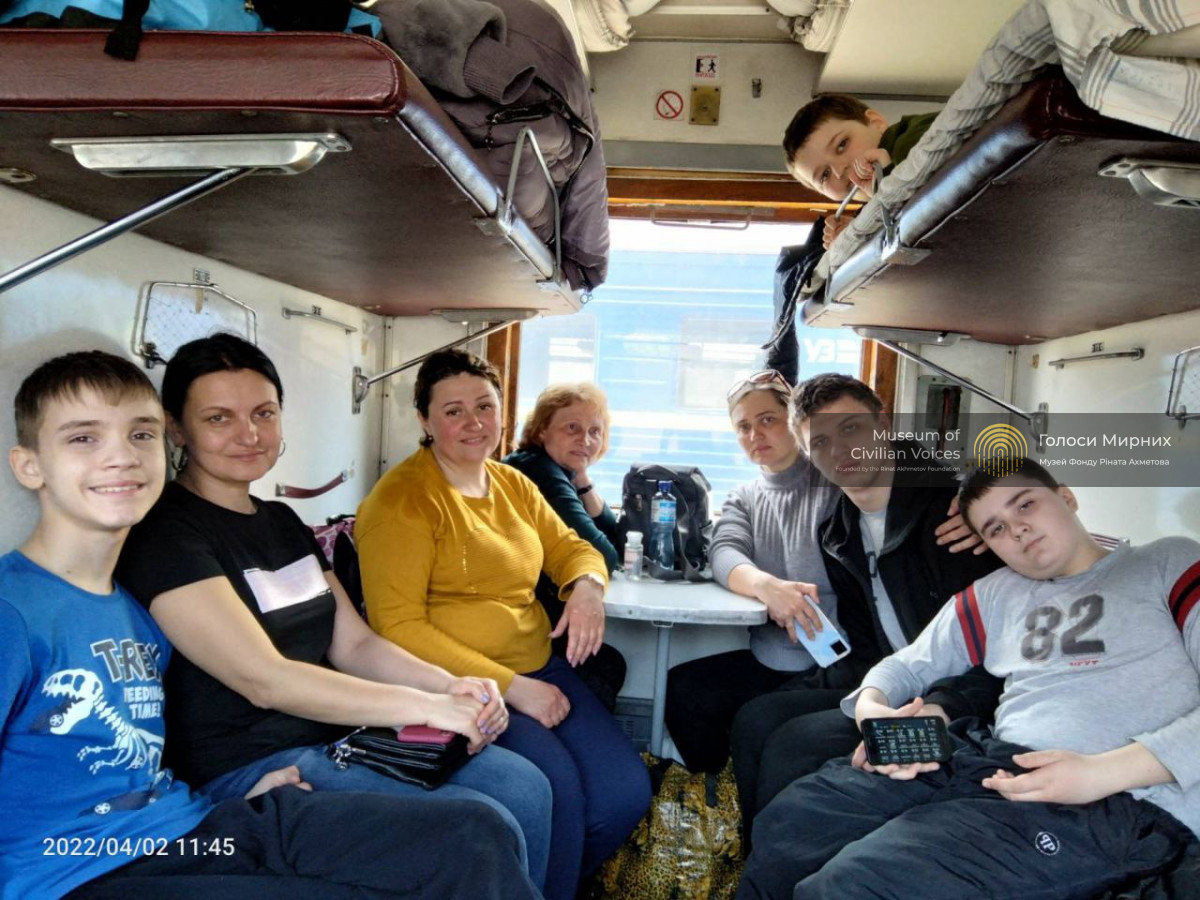
The hardest thing was that we understand it, “They forcibly took it from us; they forcibly deprived us of everything we had in our lives.” This was the hardest thing emotionally. And you realize that there is nothing you can do about it.
This is a severe emotional and psychological state. They took away our office, a lot of them, those with equipment and everything else… They just come and seize everything. They just come and take it. They seize people’s housing. You put your heart and soul into it, you did it all for yourself, for your family, for your children, and then someone came and took it. It is very hard. The military dressed in civilian clothes walk around the city. They listen to what people are saying, what people are talking about.
Phones are constantly tapped. Ukrainian cell phone network providers cannot operate. Only Russian telecomm providers’ network is available and they sell the phone service at different prices. If you pay in hryvnia (UAH), then the price would be like UAH 300-350 for a mobile operator. Clearly, there is no Ukrainian television and the Internet speed is very low. And it works through a Russian operator/provider.
When leaving home, we bade farewell because we did not know how long we were going to be here. These Russian Germans, they all the time ask, they constantly ask the question, “Are you staying? What do you plan? Do you plan to stay?
And this question haunts me for three months. To which I reply, “I don’t know, I can’t say now” – “Don’t you like it here?” I like the nature here very much. The nature in Bavaria is gorgeous; their architecture is very interesting for tourists, indeed. But, while being here in Germany, I really understood that I am Ukrainian born and bred. We all really want to go back home. Well, only having gone through such a psychological test, we understand that we want to return home, we want to be back to 23 February. Well, if you suggest it right now – to go straight home, no one would go because we all want to return to our past home, as it was on 23 February. And it will no longer be that way.
I remember how my grandmother told me (my late grandmother), when the war ended, how they danced. They danced with handkerchiefs, they cried and hugged. She told me this, “We danced with handkerchiefs, and it was so heart-warming.” It will probably be something similar for us.
When quoting a story, a reference to the source – the Museum of Civilian Voices of the Rinat Akhmetov Foundation – is mandatory, as follows:
The Museum of Civilian Voices of the Rinat Akhmetov Foundation https://civilvoicesmuseum.org/
